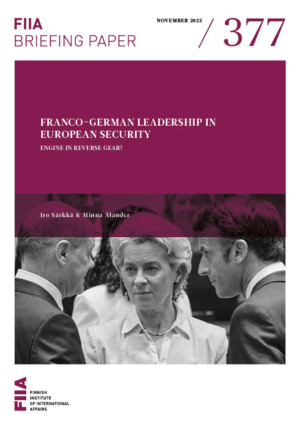Germany and France led the European response to Russia’s first war in Ukraine following the annexation of Crimea in 2014. The legacy of the failed Minsk process weighed on their ability to change course in 2022, as the required response went beyond economic sanctions and diplomatic negotiations.
In both the French and the German case, there is a mismatch between self-perception and external expectations. France lacks the economic and military resources to substantiate its great-power identity, while Germany’s selective leadership is not on a par with its economic weight. As a result, neither French President Emmanuel Macron nor German Chancellor Olaf Scholz were able to provide convincing leadership in the initial stages of Russia’s second war in Ukraine in 2022.
While the Franco-German reconciliation has historically constituted the core of European integration, their response to Russia’s war of aggression and its wider implications in Europe has made it clear that the Franco-German engine is struggling to provide coherent and effective wartime leadership.
The two countries should not only acknowledge the enduring central role of the transatlantic link for European security, but also enhance cooperation with groups of smaller countries – and consider following their lead, too.



